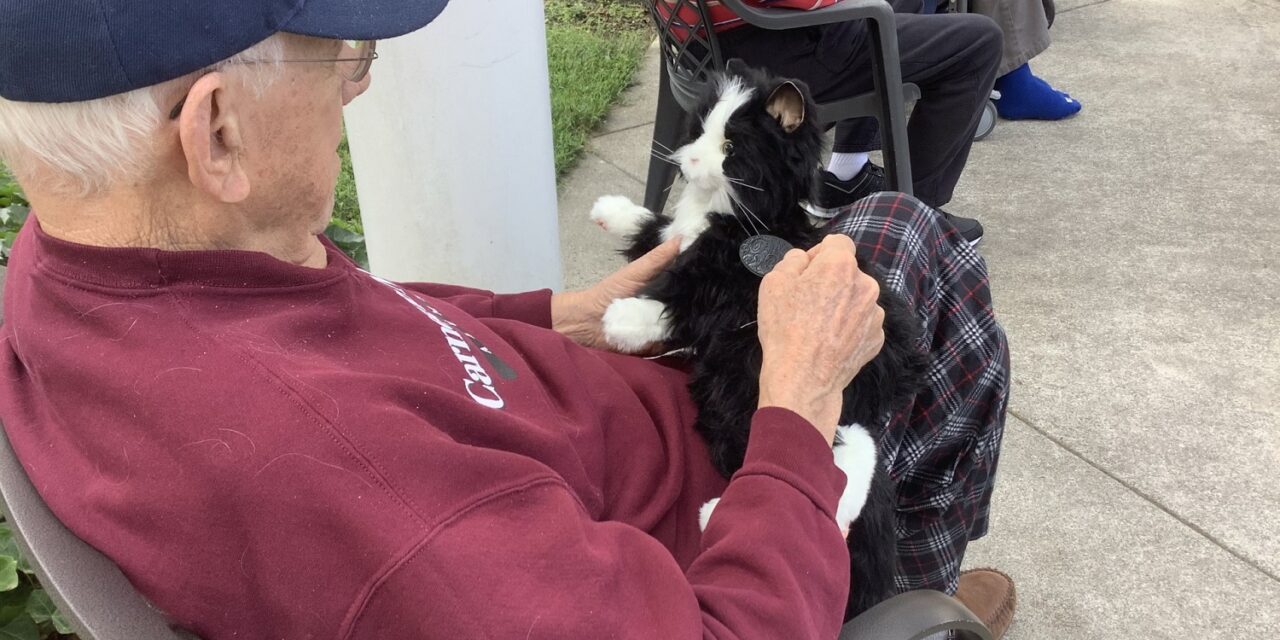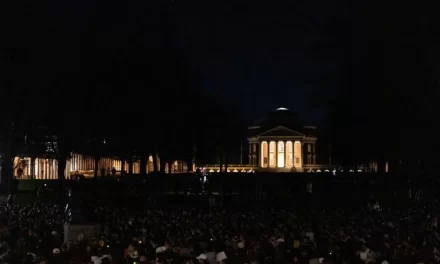(Richmond, Va.) The Virginia Department of Veterans Services is pleased to announce that Capital Caring Health, based in Falls Church, Va., is providing companion robotic pets for veterans at the Commonwealth’s veteran care centers.
Sitter & Barfoot Veterans Care Center in Richmond, Davis & McDaniel Veterans Care Center in Roanoke, and Jones & Cabacoy Veterans Care Center in Virginia Beach each received six robotic pets – three dogs and three cats. The Puller Veterans Care Center in Warrenton will also receive six robotic pets upon its opening.
According to clinical studies and first-hand experience at Capital Caring Health, these companion pets have been proven to improve the quality of life of veterans and others suffering from dementia and/or loneliness.
“We find that the robotic pets are very helpful in assisting with residents when they are agitated or restless,” said Robyn Jennings, Administrator at Sitter & Barfoot Veterans Care Center in Richmond. “It gives the veterans a sense of peace when holding the pets.”
The pets arrive ready to enjoy and interactively react to human touch and voice like real pets. Capital Caring Health has donated robotic pets not just to Virginia’s state-run veterans care centers, but to every state-operated veterans care center throughout the Nation.
“Recipients of our robotic pets usually keep them around the clock and name them,” said Stephen Cone, Chief of Communications, Marketing & Philanthropy at Capital Caring Health. “Personalities of the veterans change from agitated and confused to often joyful, happy and calm – a dramatic transformation that improves the veterans’ lives. I hear from families all the time how miraculous it is for their family member to have received one of these pets.”
These robotic companion pets are provided free of charge to any professional caregiver or family caregiver who contacts Capital Caring Health on behalf of a loved one or patient with dementia thanks to donations from individuals, companies, and foundations.
Recently, the veterans care centers also implemented additional technology to include the use of virtual reality (VR) headsets – all with the goal to improve the lives of the veterans who reside there.
“Our goal is to consistently improve the quality of life of the residents in our care centers, which is why we are committed to utilizing the most innovative technology to meet their needs,” said Chuck Zingler, Virginia Department of Veterans Services Commissioner. “Not only are we implementing these robotic pets for our dementia patients, but we also have been using virtual reality (VR) headsets to assist with PTSD, as well as telehealth appointments to make it easier for our less mobile residents to still meet with their doctors.”









